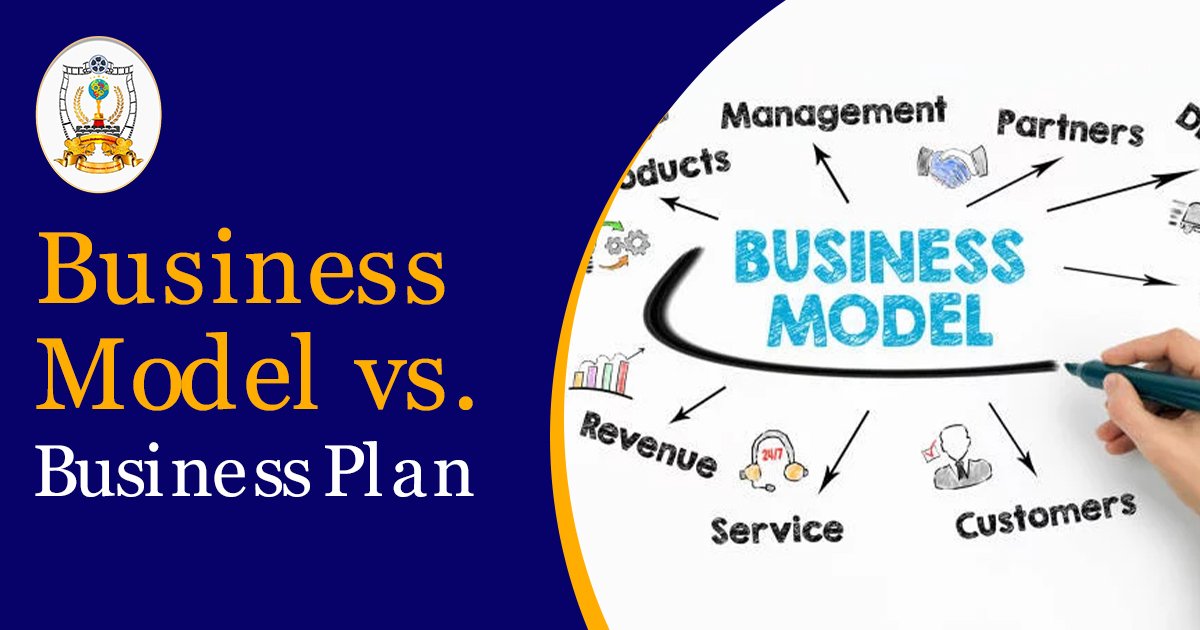Perhaps if you are preparing to create a successful business, there is an immense difference to be understood about the variance of a business model vs business plan, although both terms seem often to be written together, they play very distinct roles in defining the trajectory of a company.
So, let’s see what puts them apart, why each is important, and how one can best utilize them.

Difference Between a Business Model and a Business Plan?
When you are starting a business, you’re probably blasted with the terms business model and business plan. The two are related but very different concepts:
- A Business Model talks about the flow of the creation of revenue through your company within the context of value for customers.
- A Business Plan is an accurate roadmap indicating the company’s strategy and its intentions in simple and structured language.
Understanding the Business Plan

Importance of a Business Plan
What is a business plan? Your roadmap to success is quite simple. A good business plan does more than present goals to be accomplished; it helps you prepare for and overcome challenges, stay on track regarding growth, and demonstrate exactly how you’ll achieve your business objectives.
“A business plan is like a GPS for your business journey—it keeps you on track and moving forward.”

Components of a Business Plan
A business plan can be overwhelming; breaking it down into smaller parts makes it very manageable. Here’s what a good business plan should include:
Executive Summary: Summary of your business at the top level outlining what your business plan entails.
Company Description: What is your business, and what makes you unique?
Market Analysis: Your Industry, Competitors, and Target Market.
Organization and Management: Definition of the organizational structure of your company as well as your team.
Product or Service Line: Offers about what you are selling, the benefits, and how it solves customer problems.
Marketing and sales strategy: How will you win and retain your customers?
Pro-forma Income Statement: This will give you project revenues, projected expenditures, and profits for a particular period.
Funding Request (if applicable): Enter the amount you require in funding, and what you shall do with it as an applicant for which you want to raise funds with the help of investors.
Business Plan Writing: Tips for Success
Creating a business plan is not unbearable after all. Here are some tips that will help:
1. Use a template: There are so many templates that offer summaries of each of the sections, so you can just start in no time.
2. Be realistic: Set goals that, based on your market research and industry statistics, can be successfully met.
3. Be flexible: The better plan is made flexible to accommodate changes as your business grows and changes in your marketplace occur.
It clarifies the company’s vision and objectives while assisting with the evaluation of the feasibility of business ideas, thus providing abundant benefits for writing a business plan. It becomes a strategic management tool to attract investors and generate funding while presenting an apparent framework for well-informed decisions. A business plan outlines market analysis, financial projections, and a competitive landscape that will bring all stakeholders into the same patch of direction and purpose. In addition, it serves as a point of comparison for monitoring progress and adjustment of strategy, making it easier to stay on the right track to long-term success.
Business Plan Examples: Getting Inspiration
Analyzing business plans inspires ideas from examples. From small startups to high-level enterprises, you can find examples of all, yet the same format echoes in each unique example. For instance,
– A tech startup business plan might emphasize innovation and scalability.
– A retail business plan could focus on location strategy and inventory management.
– A service-based business plan would likely highlight the unique skills and experience of the team.
“Inspiration is everywhere—use examples as a launching pad, not a script.”
Understanding the Business Model
Your business plan is important, your business model is the underpinning of your money-making proposition and value delivery. Let’s talk more about it:
Key Elements of a Business Model:
1. Value Proposition: What’s unique about what you’re selling to your customers?
2. Customer Segments: Who are your customers?
3. Revenue Streams: How do you make money?
4. Cost Structure: What are the substantial costs you incur?
5. Key Partnerships: Whom you collaborate with that help streamline your processes.
6. Distribution Channels: Through which channels would you deliver your product or service to your customers?
Types of Business Models:
There are so many kinds of business models, and they appear suited to different industries and customer needs. Among such popular models are:
Subscription Model: In such a model, customers pay to have continued access to a company, for instance, Netflix.
Freemium Model: It is popular with software companies by offering a free basic product where, at some juncture, it can be upgraded to premium features for a price.
Direct Sales: Those sales directly to an end-user via a direct transaction, whether online or in person, and cut out the possible distribution level or middleman.
“Your business model is the ‘engine’ of your business—it’s what keeps everything running and profitable.”
Business Model vs. Business Plan: How They Work Together
A business plan and a business model are two different ideas. When combined, they offer a comprehensive view of the state and prospects of your company.
The business model describes how you will generate revenue and provide value. The purpose of your firm, your goals, and your strategy are all explained in the business plan.
To put it briefly, the plan offers a planned route to long-term success, while the model offers a realistic strategy for earning money.
“Think of your business model as the ‘skeleton’ and your business plan as the ‘muscle’—together, they bring your business to life.”
Conclusion: Building Blocks of Success
A business model and a business plan are complementary tools in building a great business. A business model forms the foundation for profitability, while a business plan guides sustainable growth. Once you understand and apply both, you’ve got your foundation down for success and can prepare yourself for more opportunities.
Commonly Asked Inquiries
1. Do I need a business model, a business plan, or both to be successful?
Both are vital. A business model can be described as a revenue generating strategy, and a business plan is a route that explains how your venture should grow over an extended period.
2. How frequently should I review and update my business plan?
Every business plan should be reviewed and updated from time to time, say annually, or whenever your business environment, and/or the broader market, has significantly changed.
3. Which is the most common type of business model?
The most widely used common business models are subscription, freemium, direct sales, and marketplace models, all customized for specific different types of industries and financial objectives.
4. Is a business model dynamic or static?
Absolutely. As markets shift, many companies update their strategies to meet better customer needs or capitalize on new opportunities.
Suggested read: Strategic Financial Planning
Suggested read: Proven dig marketers










